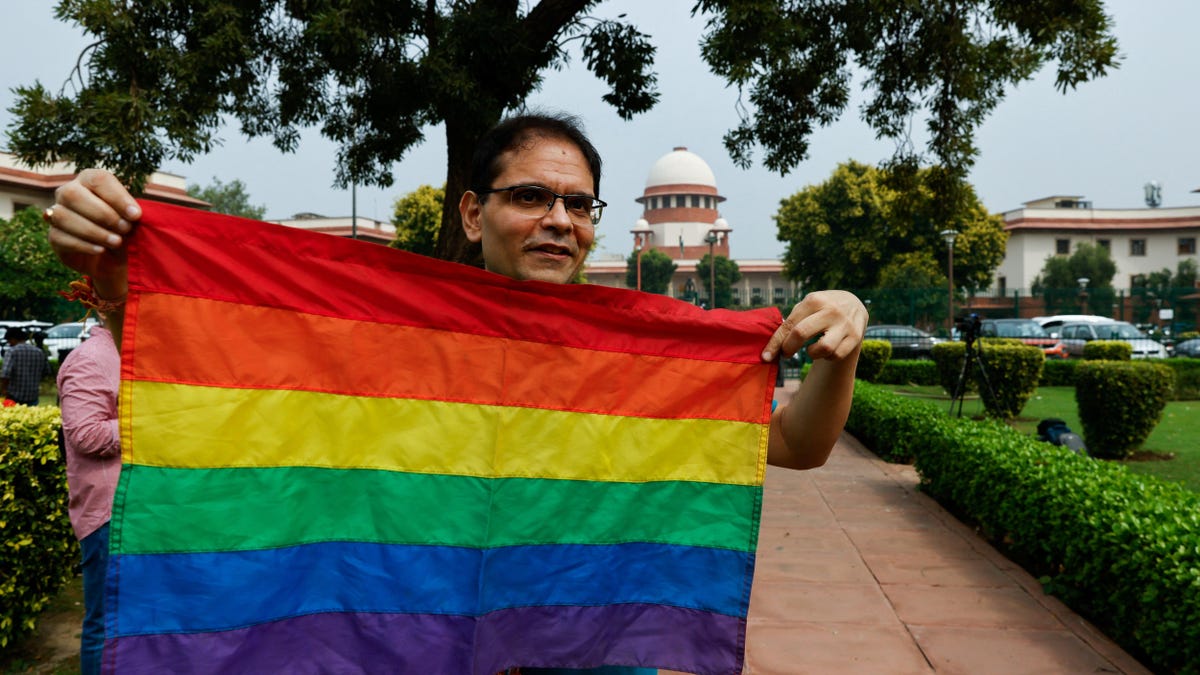India’s Supreme Court recently ruled in a 3-2 decision that the right to marry is not a fundamental right in the country. This disappointing verdict has left the LGBTQ+ community in the same position as before, with no progress on their rights. The court did not make any changes to existing marriage laws and instead passed the responsibility to the legislature and government to address this issue. It comes as a letdown just a few months after the central government argued against the legalization of same-sex marriage in court.
Equal rights activist Harish Iyer expressed disbelief at the government’s argument that marriage equality is an “urban elitist concept,” wondering how people suddenly become same-sex lovers when they are in cities like Bombay. He notes that today, almost everyone recognizes that marriage equality is not an elite concept. However, the court’s verdict was still unsatisfactory. Iyer believes that the ideal decision would have recognized all unions between two adults as marriages or at least provided a legal contract option without using the term “marriage.”
Lawyer Tanushree Bhalla emphasizes the importance of legal marriage for the queer community, as it grants various rights and benefits, such as insurance, joint bank accounts, spousal succession, and medical decision-making. Marriage also holds cultural significance and respect in society.
While two judges supported the legal right for queer people to form civil unions and enjoy relationship rights, housing rights, adoption rights, and more, the majority opinion disagreed. The court panel recognized the need to protect queer individuals from discrimination, harassment, police persecution, and outlawed conversion practices. However, they did not provide clear guidelines on when and how these protections would be implemented. They proposed the creation of a committee to define and carry out these changes, but without clarity on its composition, timeframe, or authority, there is uncertainty about when these rights will be extended to the LGBTQIA+ community.
Transgender people in India currently have some clarity regarding their marriages. The court stated that trans individuals in “heterosexual” marriages are compliant with the law. However, the government’s stance on same-sex marriage creates ambiguity and inconsistency regarding LGBTQ+ rights.
Activist Anish Gawande believes that relying solely on the courts for LGBTQ+ rights is not enough and suggests alternative paths for liberation. This includes engaging with India’s political class to leverage the queer community’s social and cultural capital into political capital. Building solidarity with other marginalized communities and allies is also crucial in presenting a united front for equal rights.
In another concerning development, the Supreme Court denied a petition by a woman suffering from postpartum psychosis to terminate her pregnancy beyond the legal limit. The court prioritized the health and well-being of the fetus over a woman’s autonomy and decision-making. This decision highlights the need for progress in women’s rights and autonomy in India.
Overall, the recent Supreme Court ruling on marriage rights for the LGBTQ+ community in India has left many disappointed. There is a need for increased advocacy, political engagement, and solidarity to fight for equal rights outside of the courtroom.
Denial of responsibility! Vigour Times is an automatic aggregator of Global media. In each content, the hyperlink to the primary source is specified. All trademarks belong to their rightful owners, and all materials to their authors. For any complaint, please reach us at – [email protected]. We will take necessary action within 24 hours.


